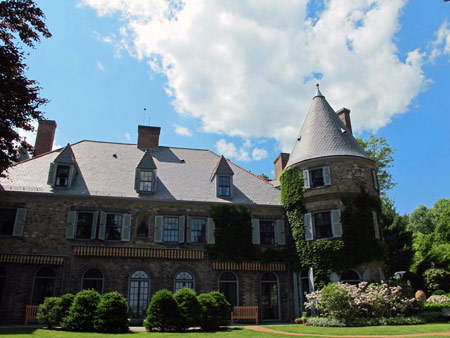By Marcelene Sutter

Tomorrow, our friend and partner, the Pinchot Institute for Conservation Studies, celebrates its 50th anniversary. Founder Gifford Bryce Pinchot, a former vice president of American Forests and a contributing author to our magazine, is often called the father of American conservation for his innovations in the field and dedication to the protection and management of American forests.

President John F. Kennedy, who gave a speech to dedicate the Pinchot Institute upon its opening on September 24, 1963, described the principles that the institute exemplified as, “action for which those who come after us will be grateful, for which will convert killers and spoilers into allies … .” Since 1961, when Pinchot set the ball in motion with his proposal that the Pinchot estate serve as an environmental education center for the American public, the Pinchot Institute has been dedicated to in-depth research on key environmental concerns.
Currently, the institute is conducting nonpartisan research on energy and climate concerns with the goal of positively affecting the future of conservation with the development of practical solutions to these challenges. Because of its access to prominent scholars in this field of study, the Pinchot Institute has proved an effective mechanism for the conversion of these conservation findings into legislation and policy changes that determine the management of our nation’s forests.

As President Kennedy also said in his dedication of the Pinchot Institute, “the fact of the matter is, this institute is needed more today, than at any time in our history.” With mounting environmental concerns, his statement remains true today for this vital organization, as well as for all conservancy organizations such as ours. This is why we at American Forests have made a commitment to action on policies that will protect and expand the presence of trees in America.
One of the issues that we are currently supporting is the Community Parks Revitalization Act, which is under consideration by the members of the House Subcommittee on Public Lands and Environmental Regulation. This legislation, if moved to the floor and passed, would focus on rehabilitating and expanding greenspace in urban areas, something that certainly aligns with the ideals of Pinchot. These urban recreation areas and the trees are desperately needed and would benefit the more than 80 percent of Americans who live in cities. To encourage the House Subcommittee to send the Community Parks Revitalization Act to the full committee, email our pre-written letter to the members of the subcommittee.